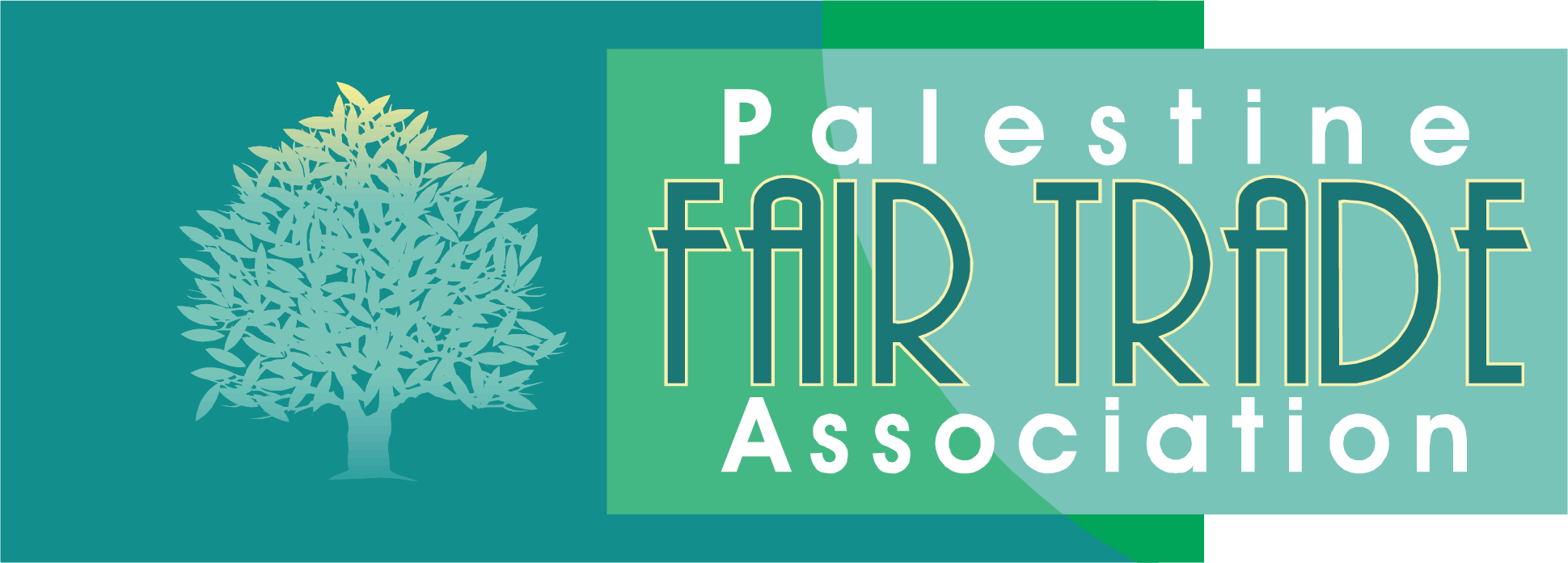Organizational Structure
Palestine Fair Trade Association (PFTA) is a Palestinian national union of fair trade producing cooperatives, processors, and exporters. The organization’s main activities are to:
- Promote social accountability in the production and trade process in Palestine through fair trade ideas and practices.
- Establish locally understandable fair trade guidelines and standards that concern Palestinian products that are in sync with international fair trade standards.
- Pre-qualify Palestinian producers and products for internationally recognized Fair Trade certification standards.Create a medium where producers, processors, and exporters can sort out matters of joint interest related to production and trade process.
- Empower women and other marginalized groups especially in rural areas through economic and social empowerment programs.
- Increase international market access to Palestinian producers through fair trade channels.
- Promote environmentally friendly farming practices and support conversion into certified organic farming.
- Create mediums and opportunities where Palestinian grassroots and small holders can cultivate the international solidarity and support they have into meaningful and empowering outcomes.
The Palestine Fair Trade Association joins in its membership the following groups (see Organizational Structure Chart below):
- Producers’ cooperatives, such as a group of olive oil producers, a group of sesame seed and wheat producers, a group of honey farmers, etc.
- Women worker cooperatives, such as a group of couscous makers, sun-dried tomato cooperative, Za’atar making cooperative, olive oil soap making cooperative, a group of wild collection workers for Za’atar, capers, sumac, and herbs, etc.
- Processors, such as participant olive mill owners, a soap making factory, a tahini processing factory, etc.
- Exporters/traders, such as olive oil exporting fair trade companies, and other Palestinian exporters of fair trade goods.
- Workers unions, such as a group of workers at a fair trade processor or a fair trade exporter.
These groups represent the parties directly affected by the Fair Trade process and are all represented in the General Body (GB) of PFTA. Representation for farmer producer’s groups, women cooperatives, and workers union representatives are proportionate to group or cooperative size. Each 25 members are represented by one person that is elected democratically to represent the group in the GB. Normally a producer group is represented by 1 to 3 representatives varying based on the size of the cooperative according to the above formula. Exporter and processor organizations and companies are represented by one member each in the GB.
PFTA organizes and builds producing cooperatives as part of its fair trade development and promotion program. PFTA also has a procedure in place to pre-qualify and accept existing producing cooperatives into PFTA’s membership and the Palestine Fair Trade Program. PFTA also has established procedures to pre-qualify traders, exporters, companies, and organizations for PFTA membership and integration into the fair trade process. Exporters and processors who are accepted into PFTA membership enter into a contract membership with PFTA that ensures full implementation and respect of Fair Trade guidelines and product specific guidelines and pricing when trading with PFTA’s producer groups and cooperatives. Exporter and processor memberships are renewed annually based on review of fair trade performance over that past year’s reports. Producers’ cooperatives, women cooperatives, and workers union representatives pay an annual membership fee of 5 Jordanian Dinars (JD) per representative member. Exporters and processors pay an annual membership fee of 50JD per member. Exporters are also expected to return portions of profits to the producer groups they purchase their raw material from and other portions to support PFTA’s budget.
The General Body meets annually and elects PFTA’s Managing Board (MB) on a bi-annual basis. MB members (9 members) are volunteers and do not receive any compensation from PFTA. MB appoints and oversees the PFTA office staff and project managers. Office staff and project managers are paid employees of PFTA. The GB represents the highest authority of the organization. PFTA’s staff conducts research concerning a product and certain production activity in relation to fair trade certification. Product guidelines, minimum fair trade pricing, etc. are normally drafted by PFTA’s staff and MB. Once developed, guidelines are ratified or amended by the GB. The producer’s groups in their capacities as GB members may lobby GB to amend certain items they see necessary. They may affect a change or impose certain restrictions on their relationships with processors or exporters though GB resolution in reference to the specific product guidelines.
